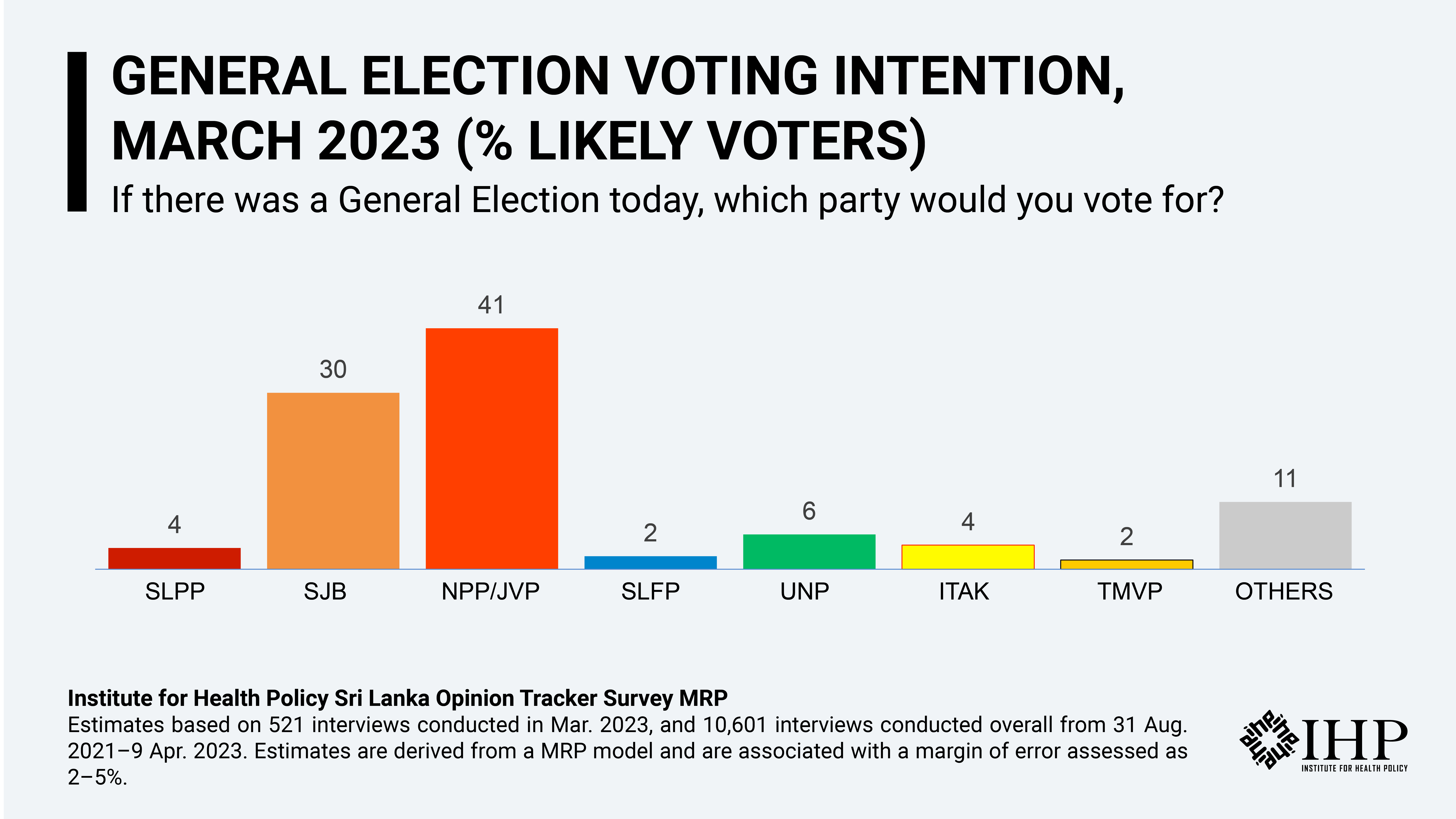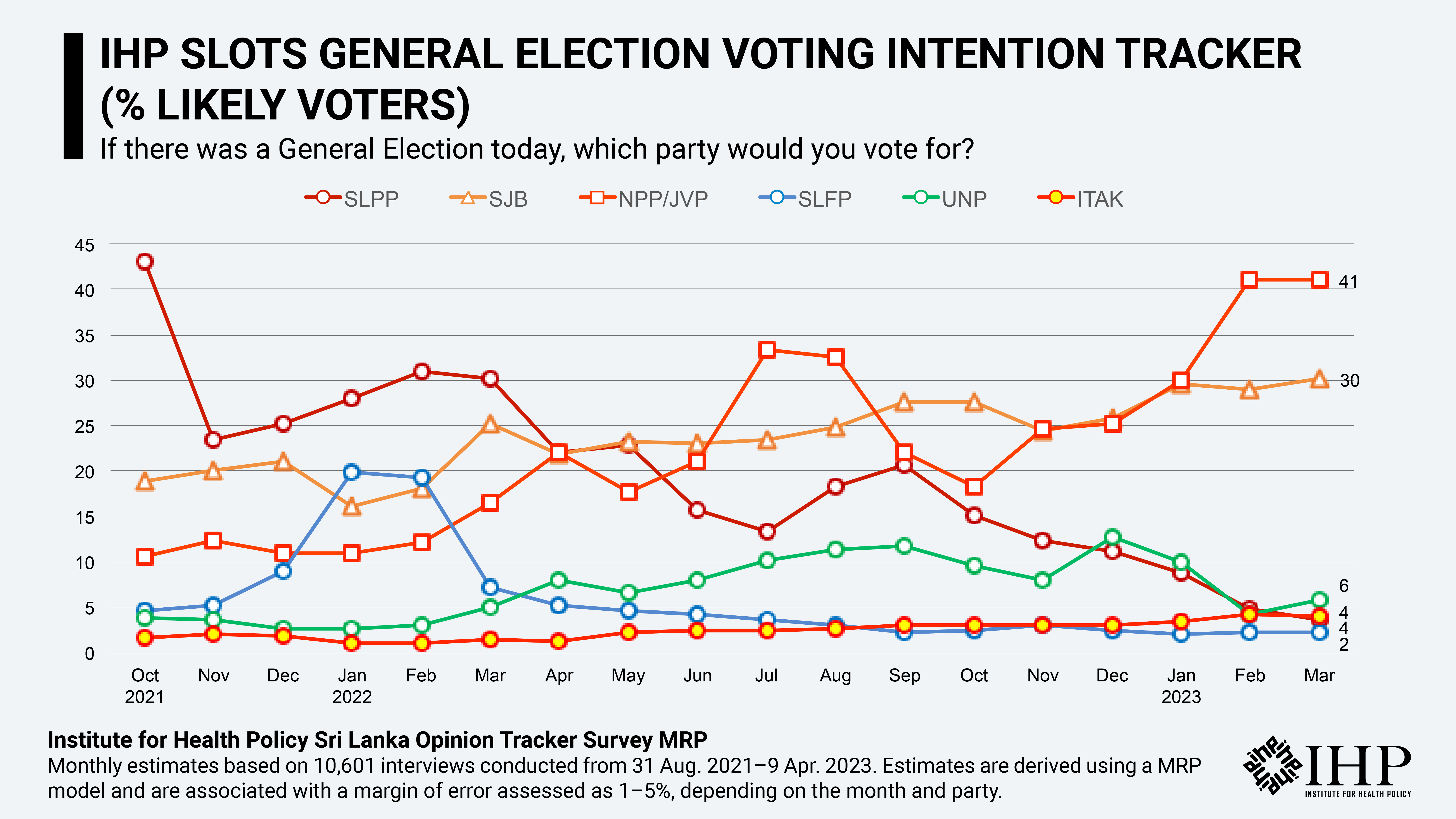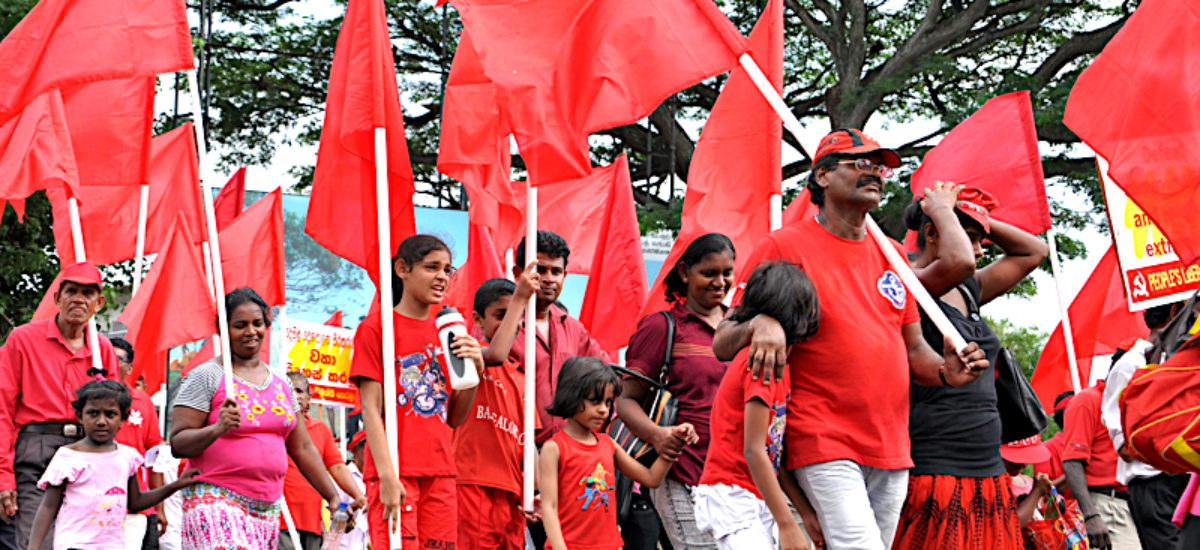Photo courtesy of Sri Lanka Brief
Despite the IMF deal reached to rescue Sri Lanka from the brink of economic collapse and the slight recovery in investor confidence, the general election voting intentions of the public have not changed, with the NPP/JVP maintaining a clear lead over its closest rivals, the SJP, according to the latest Sri Lanka Opinion Tracker Survey (SLOTS) polling in March.
A possible signs of a UNP rise was also detected.
The polling revealed little change from February, with NPP/JVP at 41% of likely voters maintaining a clear lead over the SJB on 30%. The UNP share did increase two points to 6% although within the margin of error, this might be early signs of a real increase.

The NPP/JVP continued to lag a little in voter enthusiasm, with this reducing its lead over the SJB in likely voters by 2% versus all voters.

During the four months ending in March 2023, there was also little change in preferences at provincial level, although the NPP/JVP took a clear lead in Sabaragamuwa over the SJB, while closing the gap in Uva.
Dr. Ravi Rannan-Eliya, SLOTS lead investigator and IHP Executive Director, commented that the March polling does not show any evident impact from the recent IMF agreement, which is surprising given that SLOTS also showed some recovery in consumer confidence. But he stressed that any changes might be too small at this time to be picked up by the SLOTS sample.
Methodology
SLOTS combines interviews from a national sample of adults (ages 18 and over) reached by random digit dialling of mobile numbers, and others coming from a national panel of respondents who were previously recruited through random selection. IHP estimates voting intent using an adaptation of Multilevel Regression and Post-Stratification (MRP), with multiple imputation to account for uncertainties in its modelling, exploiting data from all SLOTS interviews to estimate voting in a particular month.
The March 2023 MRP estimates are based on 521 interviews conducted in March 2023, and 10,601 interviews conducted overall from 31 August 2021–9 April 2023, with a margin of error assessed as 4–5% for the NPP/JVP, SJB and SLFP and 1–3% for the other parties. As the March update uses a more recent data set than the previous update, there are small changes in estimates of voting shares for previous months. Additionally, the number of multiple imputations used in the modelling was increased from 20 to 30, yielding a small improvement in the precision of estimates of voting shares and of margins of error.
MRP is a method that is increasingly used by polling firms in other countries to leverage small samples, most notably by YouGov which used it to forecast results of the UK Brexit Referendum and recent UK general elections. All estimates are adjusted to ensure the sample matches the national population with respect to age, sex, ethnicity, socioeconomic status, education, geographical location, and voting in the 2019 Presidential and 2020 General Elections.
IHP is an independent, non-partisan research centre based in Colombo, Sri Lanka. The SLOTS lead investigator is Dr Ravi Rannan-Eliya of IHP, who has trained in public opinion polling at Harvard University and has conducted numerous surveys over three decades.
The SLOTS has been funded by the Neelan Tiruchelvam Trust, the UK National Institute for Health and Care Research (NIHR), The Asia Foundation in Sri Lanka, and others, but the sponsors play no role in the study design, analysis, or interpretation of findings. Interested parties can contact IHP for more detailed data and results.

